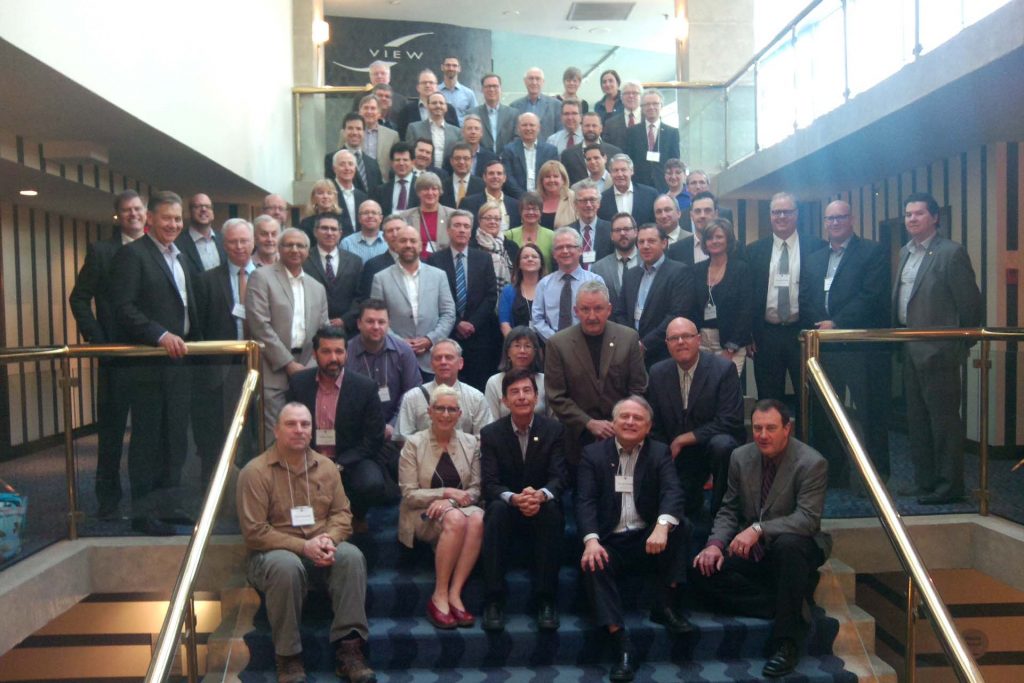Canada Prepares for the UN Climate Change Conference

Arguably one of the most important election promises made by Justin Trudeau and the Liberal Party of Canada was to reengage Canada in a meaningful way in international efforts to combat climate change, and Prime Minister-elect Trudeau has already stated that he will attend the UN Climate Change Conference in Paris coming up at the end of this month, bringing with him a wide array of political and business leaders from across the country. Many Canadians welcome this re-engagement after seeing criticism from around the world leveled against Canada in recent years for what some viewed as a move away from participation in the development of legally binding and universal agreements to curb the further progression of massive CO2 emissions and other man-made pollutants. This will be the 21st yearly session of what is known as the “Conference of the Parties” built on the landmark 1992 UN Framework Convention on Climate Change. Discussions on this topic at the Empire Club of Canada, so often a bellwether for what policy issues are being focussed on by Canadians from all across the country, do not go back much further than the early 1990s, and perhaps the first major speech on this topic was delivered on Valentine’s Day, 1991 by Dr. Giacomo Capobianco who spoke on “The Reordering of Planet Earth: The Development of Rational Policies in a Shrinking World”. Some found it somewhat unusual that Dr. Capobianco, the President of the Coal Association of Canada, would make such a speech, but he presented convincing arguments that this was the most sustainable choice of fossil fuels at that time, noting that 80% of Canada’s hydrocarbon reserves were coal and that we could learn to use it in a clean and safe manner. What was really noteworthy in this speech was a reference to the upcoming UN Conference on Climate Change, fifteen months away from the day the speech was given, and the first major meeting of its kind in the world with 159 nations set to descend on Rio de Janeiro. Dr. Capobianco asks the fundamental question “Is Canada ready to face this new crisis?”, and comes up with an unqualified “No!” as the answer. Here is a quote from that speech of nearly three decades ago:
“But, you may say, ever optimistic, I’m sure the Federal Government learned a great deal about how to follow the correct process. Not so! They have done it again. They have now committed Canada to a national cap on SO2, again without any understanding of costs, with no input whatsoever from consultation with industry, and no consultation with the key Western provinces. And, so far as we can see, no positive effect on the environment.
I submit that industry, as well as Canadians in general, should be challenging the Federal Government’s process in seeking ways to protect the environment. The Green Plan calls for many extensive consultations. Will, the approach be to react to whoever is most shrill or whichever group has the most voters? If we are to find the right path in dealing with our environmental challenges, the industry has both a major role and a major responsibility. It seems all too rare that the industry has a chance to deliver a pleasant message. In this case, I believe that once again it will not be a pleasant one as we evaluate the impact of new approaches to protecting the environment on our specific industries, our regions, and our nation.
Have no doubt that the cost of environmental protection will in many cases be very high, perhaps totally justified but still very high. Someone must quantify the costs. Clearly, it is up to the industry to ensure that the people of Canada know what costs are associated with whatever action they may choose and that our nation’s governments understand the cost impacts as well so that we can take the most efficient, lowest-cost path to achieving environmental protection and sustainable development.”
The kind of concerns expressed by Dr. Capobianco help us better understand why, in the ensuing years, there were so many enormous challenges and at times disconnects between various jurisdictions in Canada and the international environmental community…one had to reconcile industry and its fundamental importance on the quality of life enjoyed by Canadians, with international pressures and concerns that seemed in some cases to be a direct threat to entire segments of the Canadian economy. So as we fast forward to today and the reality-now accepted by most of the world’s leading scientists-that climate change is in part due to human activity and could be humanity’s greatest threat as we continue to massively populate the planet, are we more ready for the UN Climate Change Conference in 2015 than we were 30 years ago?
This week, the Empire Club of Canada welcomes to its podium Ontario’s Minister of the Environment and Climate Change, Glen Murray, who will speak on “Ontario’s Low Carbon Future”. He will have a lot to say on how much has changed in recent years, and how much things will continue to change in Canada’s regulations around carbon emissions. Many Ontarians and other Canadians will be following closely what he has to say as we collectively ask ourselves the same question that Dr. Capobianco asked in the early 1990s…” Are we ready for the upcoming UN Climate Change Conference”? The answer seems far more important today than it was 30 years ago, as many Canadians and other peoples from around the world believe now that we do not have the luxury of having another 30-year period of human history where we do not effectively and collectively come together to address this issue as best we can in a manner that does not weaken economies and erode prosperity. The stakes in 2015 are by almost all accounts-much higher than in the year leading up to the Rio de Janeiro meeting, with successful consultation and negotiation between industry and government being the key to success.


